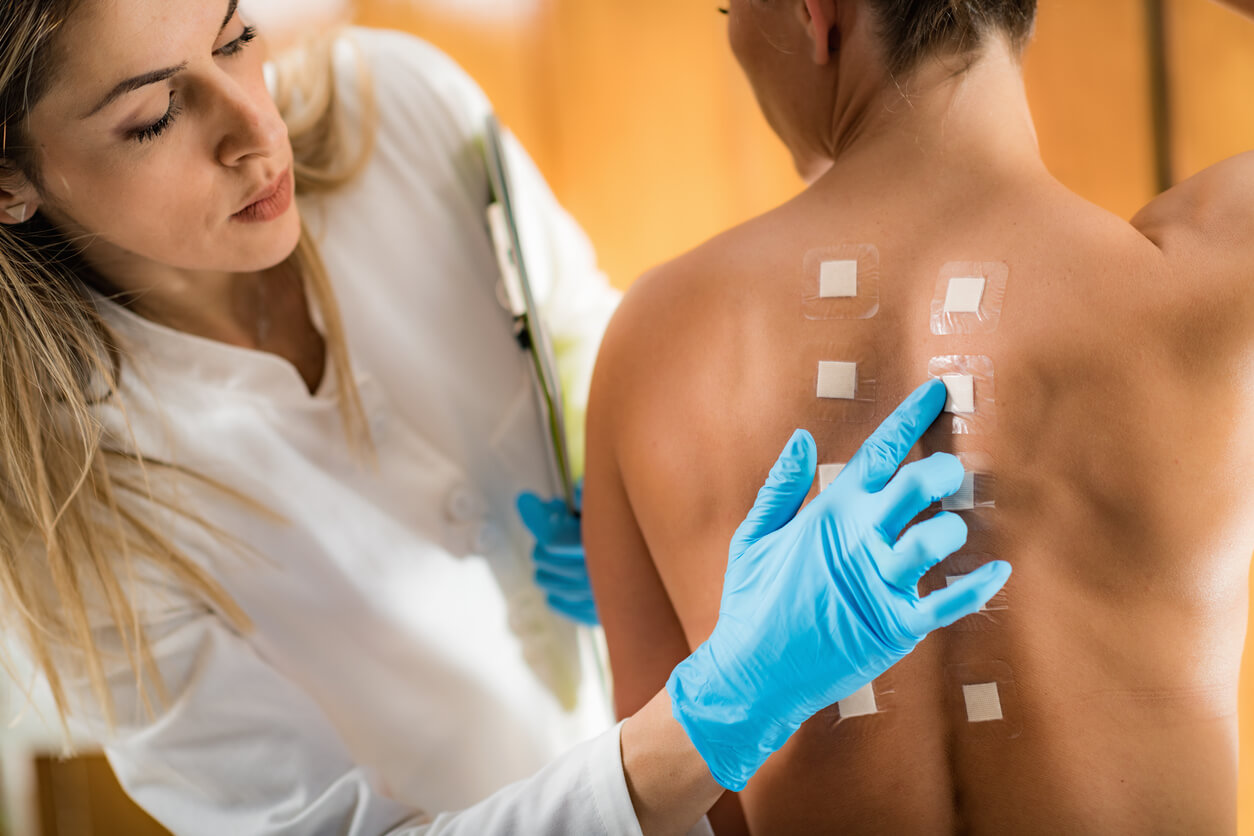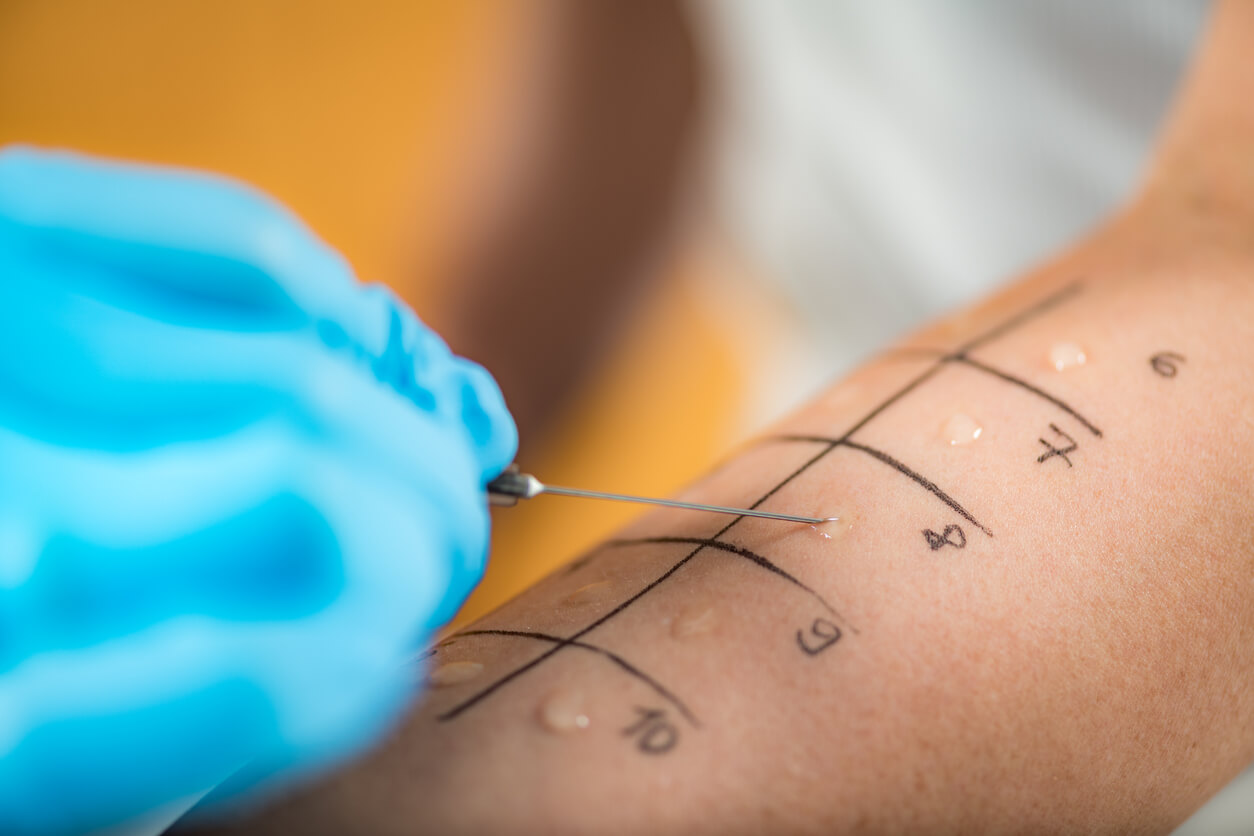Allergies occur when the immune system responds to an innocuous protein, such as the protein in a food or substance. This reaction from the immune system can cause life-threatening symptoms in severe cases, but most reactions are much milder in nature.
Most allergic reactions intercede with IgE antibodies, which can be detected with blood testing. Also, the symptoms tend to appear within two hours of exposure to the offending substance. Allergies differ from chemical or food sensitivities in which the body is reacting to specific proteins within the substance.
When Do You Need Allergy Testing?
If you are suffering from any symptoms that may be connected to exposure from a certain substance, your doctor will likely order an allergy test. This is particularly the case for food allergies, which are serious for some individuals. Testing is especially important for people who have more severe symptoms associated with allergic reactions.
Food allergies are quite unpredictable when it comes to how they manifest. While some food allergies will continue to produce mild symptoms over time, they can become increasingly serious with repeated exposure.

Preparing for Allergy Testing
If you’re going to get tested for allergies, you’re probably wondering what the process entails. Fortunately, you don’t have to do very much to prepare. However, you’ll need to avoid antihistamine medications before the test.
How Much Does Allergy Testing Cost?
Another question that patients often ask is “How much does allergy testing cost?” It’s covered by insurance. If you do not have insurance, skin tests cost $60 to $300, and blood tests cost $200 to $1,000.
How Does Allergy Testing Work?
Before you get tested for allergies, it can help ease your mind to have some understanding of the process you’ll have to go through. In most cases, you will need to get blood and skin tests done. Not only will these tests check to see if you are allergic to the food, but they will also check to see if you are allergic to other foods as well. Here’s what you need to know about allergy tests.
- Blood Testing
Blood testing is much more likely to produce false positives than skin testing. Therefore, blood tests are typically performed first as an initial screening. Then, skin testing is utilized to confirm the positive results that appear on the blood test. A blood test can be performed along with standard lab work, and all that’s required is a routine blood drawing procedure.
- Skin Testing
Skin testing involves a solution being placed on your body that contains a small amount of the allergen that you’re being tested for. If you are sensitive to it, the skin will form a welt on the spot. The size of the welt that develops will determine how severe of an allergy you have to the substance in question.
Skin testing requires an observation period to ensure that you do not experience a serious reaction to the solution that’s placed on your skin. However, this potential side effect of the procedure is quite rare. In most cases, skin testing will require an observation period of around 30 minutes. This observation period will be longer if you experience symptoms of a system-wide allergic reaction, which is uncommon.
After the allergy test is performed, you will have the results immediately. Skin testing can be done on either the back or arm. In most cases, the back of the arm is preferred as this test is much less invasive.
- Oral Food Challenges
Allergists will perform oral food challenges to confirm a food allergy. If you experience this testing, you will consume a small amount of the questionable food in a medically supervised setting. In most cases, the amount of food that you consume during these challenges will be quite small, which reduces the severity of reactions that are likely to occur.
If you do have a severe reaction, doctors will provide medications to stop the allergic reaction. This can include antihistamines, and adrenaline can be administered in severe cases. Furthermore, you will be monitored during the food challenge until the doctor has determined that you aren’t going to experience symptoms that require medical intervention.
However, oral food challenges are not always necessary, and they are only performed if there is uncertainty regarding the results of blood or skin testing. Fortunately, these tests are typically sensitive enough that an oral food challenge isn’t needed.
In some cases, oral food challenges are used to determine if you have a tolerance to the allergen in certain forms. For instance, it is not uncommon for individuals with an egg allergy to be able to tolerate eggs in baked goods. This is because the baking process denatures some of the egg protein. However, there are other examples of situations where an individual may have a tolerance to a substance that they would ordinarily experience an allergic reaction to.
- Patch Tests
If you are allergic to a substance that causes contact reactions, a patch test will be used to test your sensitivity. Some examples of these substances are ingredients in medications that are applied topically and allergenic plants. If you get a patch test done, you will wear the patch for 48 hours.
The reason you’ll wear the patch for this long is that some contact allergies have delayed reactions, which means that they may take as long as 48 hours to appear. After the patch is removed, the doctor will check the skin underneath for contact dermatitis and other signs of an allergic reaction.
While these tests do not definitively determine the severity of contact allergens, an examination of the rash that occurs can give some indication as to the overall range of severity. In most cases, more severe allergies will lead to a rash with a much more dramatic presentation.

Can You Get Allergy Testing While Pregnant?
Typically, you will not be able to get a skin test or oral food challenges while pregnant due to the risk of an allergic reaction. However, blood allergy testing while pregnant is possible in most cases. This testing is somewhat less accurate than skin tests, but it can identify foods and other substances that you may be allergic to. It also can give you some idea of the severity of reactions that could be expected.
However, some people will choose to delay allergy tests until after pregnancy. That’s because skin tests are generally used in conjunction with blood tests, and they are considered to be more accurate. If you are looking for an allergy test Hialeah professional and are pregnant, we can talk to you about your options.
Carreras Medical Center Is the Best Choice for an Allergy Test Hialeah
We can test for nearly any type of allergy, and our tests are accurate and affordable. After you get tested for allergies, we’ll devise a treatment plan that can help you avoid your triggers and keep you symptom-free. We always ensure that our allergy tests are performed in the most non-invasive way possible, and our patients have given us great reviews. Give us a call or contact us online today to make an appointment.


